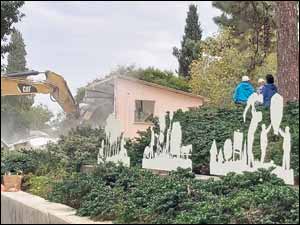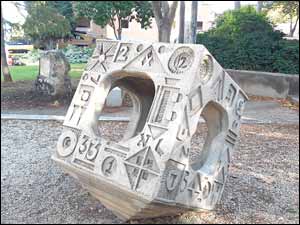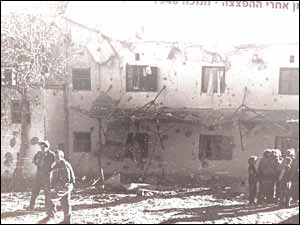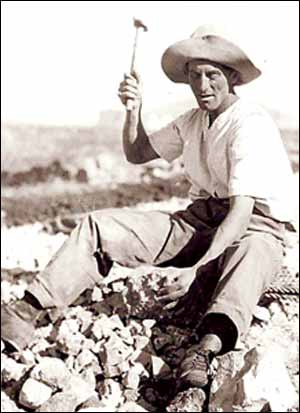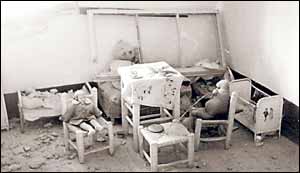 | |||||
| 90 years of history consigned to rubble and driven away | |||||
Almost a decade after Polish immigrant pioneers founded the Jezreel Valley kibbutz of Mishmar HaEmek in 1921 and still living in tents and wooden huts, they began the construction of the first concrete building.
The large two-floor structure and bomb shelter was purpose- built in 1930 to be a safe haven, a building made to measure to protect the community’s collective pride and joy, their kibbutz-born kinder. The thick walls, floors and roof of the building were constructed from concrete mixed with rocks brought by horse and cart to the kibbutz from the surrounding Menashe Hills.
The roof of the building was doubly reinforced with a high, thick wall running around the perimeter of the roof to be used as a defence position if necessary — and it was on numerous occasions. Less than two decades after construction, during the Chanukah holiday of 1948 — and just months after fighting a ferocious 10-day battle in and around the kibbutz during the 1948 War of Independence — the building was extensively damaged when an Iraqi plane, seeking to attack a nearby British built airfield, offloaded its bombs instead on the kibbutz children’s house.
The boy and two girls who died in the bombing are commemorated by a marble plaque embedded in a large rock nearby and another memorial, in the form of a large concrete dreidel with three iron torches reaching out to the sky, stands alongside. The enormous damage of 1948 was repaired and the structure continued to be used as a children’s house until the early 1990s when it once more underwent a serious renovation. No longer necessary for kibbutz kinder, the building was used until a few years ago as offices for the kibbutz administration but vacated when dangerously large cracks began to appear in the walls and floors.
As a massive bright yellow CAT excavator began to demolish the historic complex, the building groaned deeply as wall after wall was knocked to the ground, huge clouds of dust billowing into the air. A few short hours later the rubble and 90 years of history left the kibbutz packed into a fleet of heavy trucks — vivid memories, however, remaining in the hearts and minds of the onlookers. In recent times, film, photographs and written material has been collected and lodged in the ever-expanding and already packed kibbutz archives.
The building might have physically left the kibbutz, but the community will always be historically and emotionally attached to that first concrete structure that no longer exists, the symbol of a collective child-rearing system that has also become part of conversations about “in the day”, children’s houses having been disbanded on Mishmar HaEmek after the 1991 Gulf War.
If you have a story or an issue you want us to cover, let us know - in complete confidence - by contacting newsdesk@jewishtelegraph.com, 0161-741 2631 or via Facebook / Twitter

|
